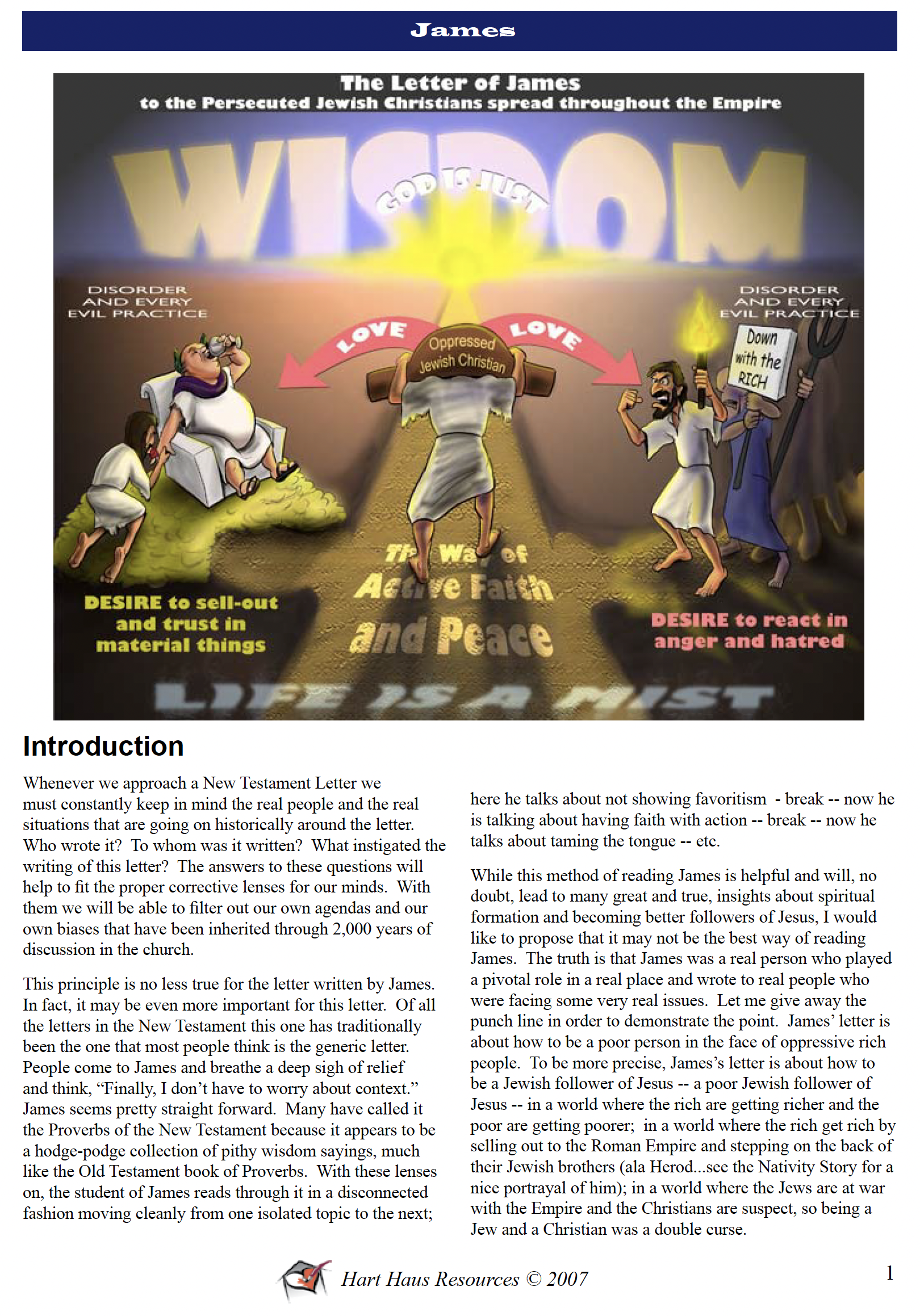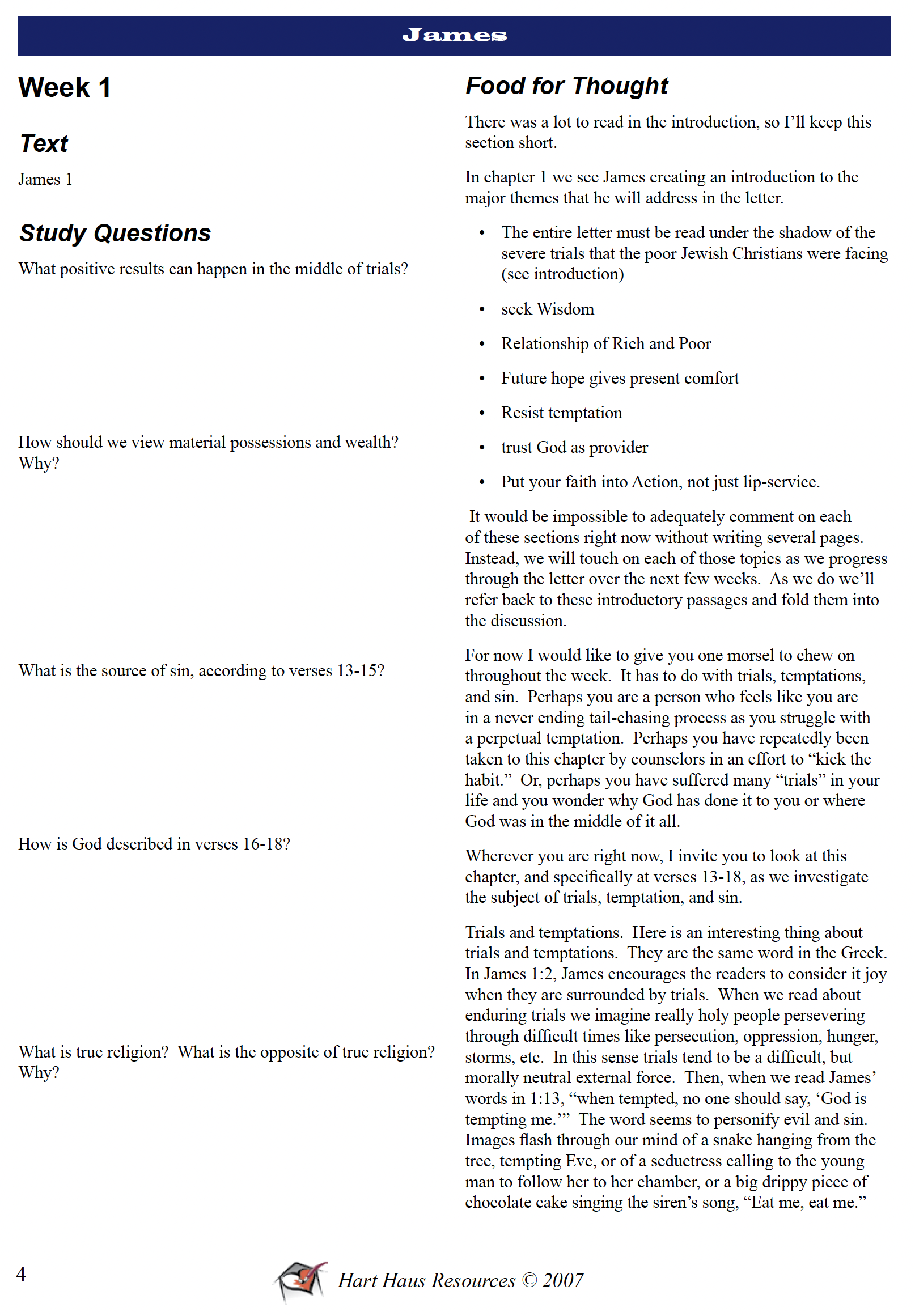
5-Lesson Study on James
This is the study I wrote for our network of house churches in Las Vegas Nevada in 2006-7. Each lesson contains study questions and a “Food for Thought” reflection/commentary. Enjoy!
This principle is no less true for the letter written by James. In fact, it may be even more important for this letter. Of all the letters in the New Testament this one has traditionally been the one that most people think is the generic letter. People come to James and breathe a deep sigh of relief and think, “Finally, I don’t have to worry about context.” James seems pretty straight forward. Many have called it the Proverbs of the New Testament because it appears to be a hodge-podge collection of pithy wisdom sayings, much like the Old Testament book of Proverbs. With these lenses on, the student of James reads through it in a disconnected fashion moving cleanly from one isolated topic to the next; here he talks about not showing favoritism – break — now he is talking about having faith with action — break — now he talks about taming the tongue — etc.
While this method of reading James is helpful and will, no doubt, lead to many great and true, insights about spiritual formation and becoming better followers of Jesus, I would like to propose that it may not be the best way of reading James. The truth is that James was a real person who played a pivotal role in a real place and wrote to real people who were facing some very real issues. Let me give away the punch line in order to demonstrate the point. James’ letter is about how to be a poor person in the face of oppressive rich people. To be more precise, James’s letter is about how to be a Jewish follower of Jesus — a poor Jewish follower of Jesus — in a world where the rich are getting richer and the poor are getting poorer; in a world where the rich get rich by selling out to the Roman Empire and stepping on the back of their Jewish brothers (ala Herod…see the Nativity Story for a nice portrayal of him); in a world where the Jews are at war with the Empire and the Christians are suspect, so being a Jew and a Christian was a double curse.



